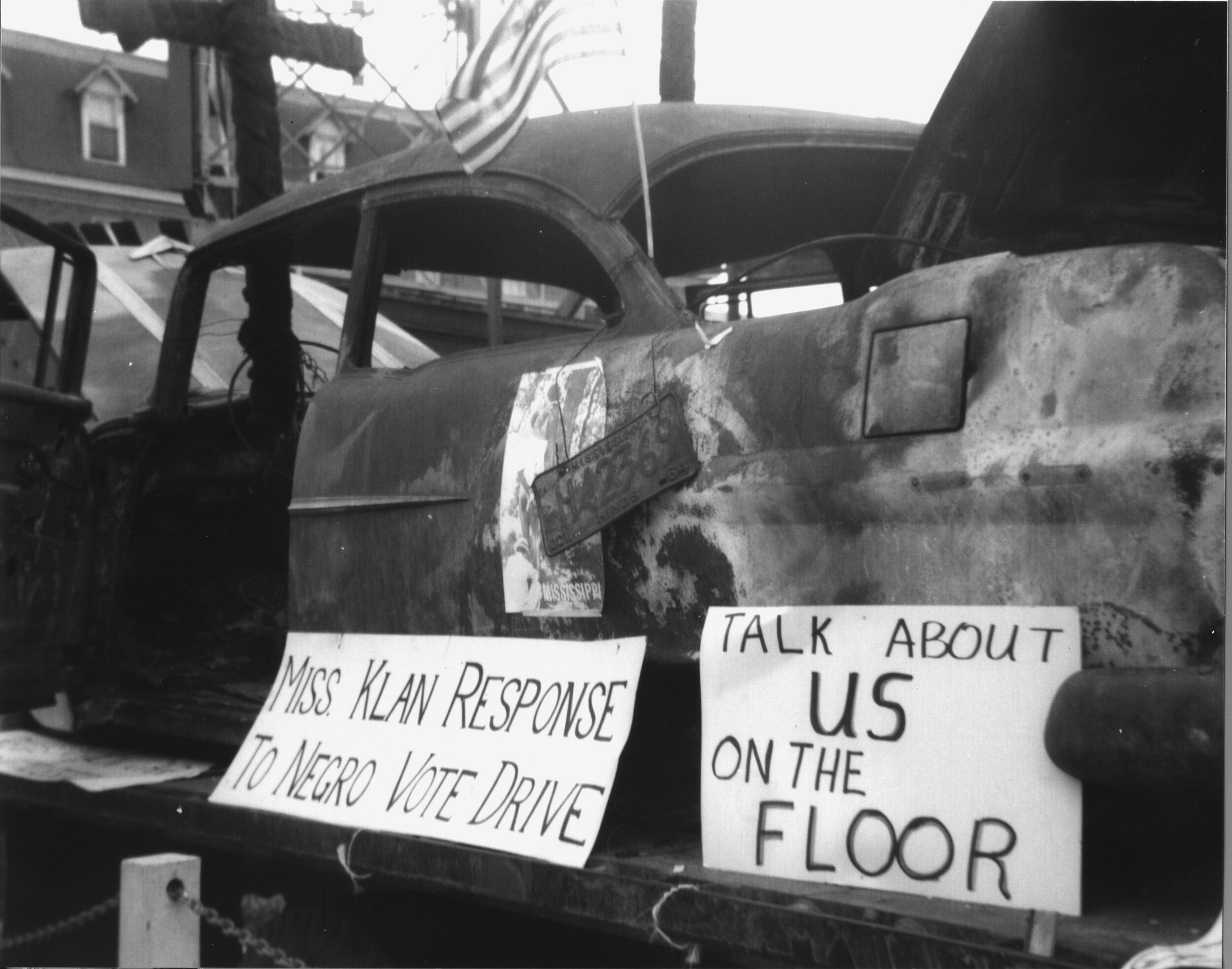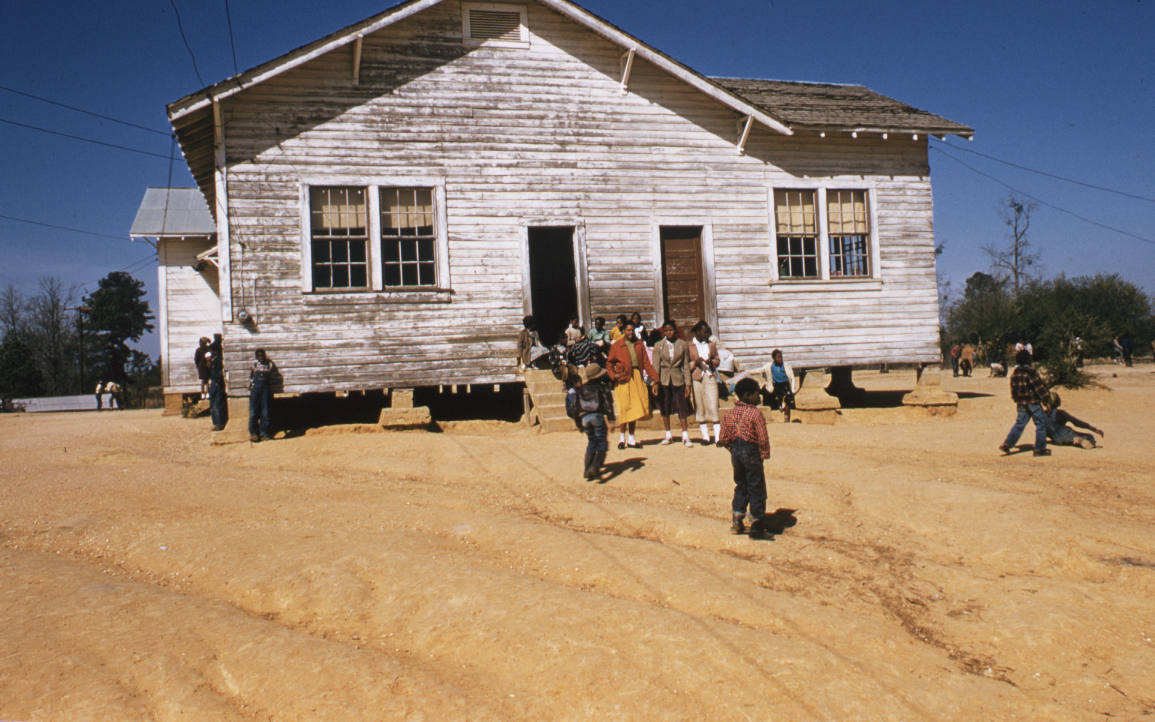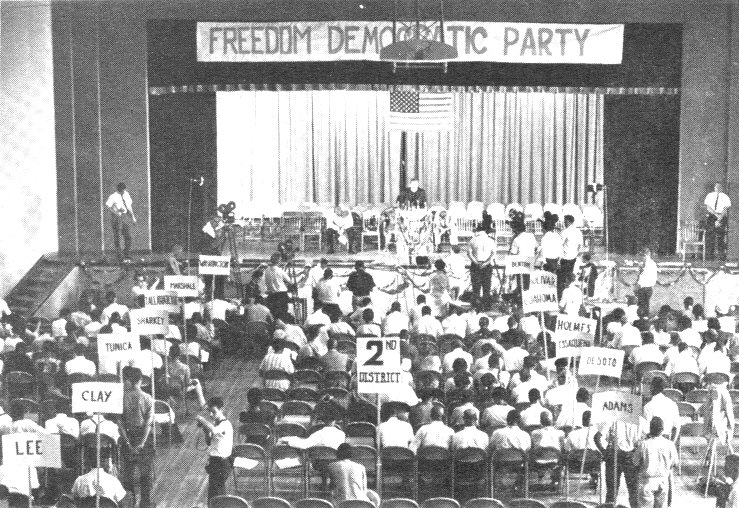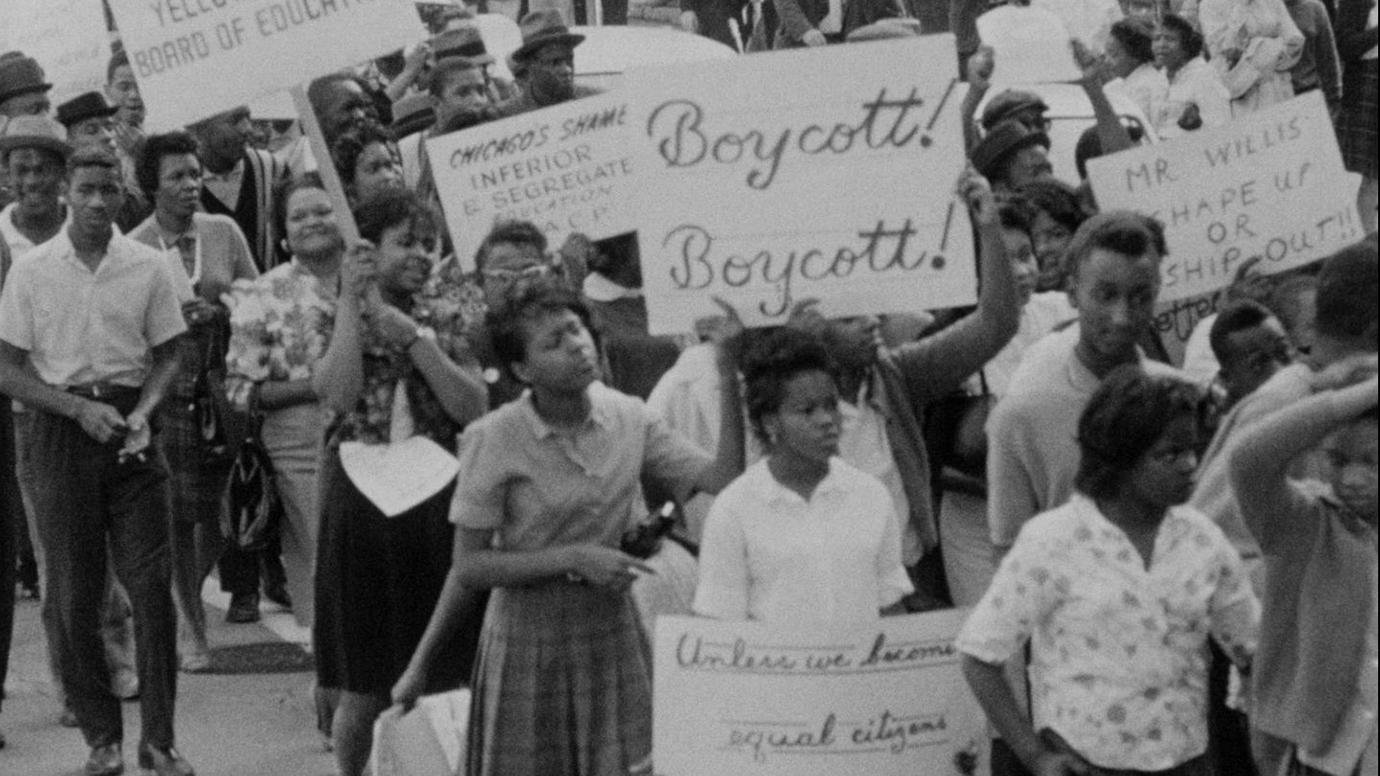
Transportation Protests: 1841 to 1992
Reading by Julian Hipkins III and David Busch
The struggle for the desegregation of transportation has a long history in the United States. This timeline outlines some key individuals and organizations who took a stand against segregated transit.

Teaching About Race and the Media
Lesson by Julian Hipkins III
The corporate media portrayed events happening across the country through a lens of white supremacy, ignoring or misreporting tales of state sponsored terrorism. This lesson introduces students to the impact of the corporate media on the Civil Rights Movement, the role of the Black press, and organizing by African Americans to hold the white press accountable.

“Is This America?” 50 Years Ago Sharecroppers Challenged Mississippi Apartheid, LBJ, and the Nation
Reading by Julian Hipkins III and Deborah Menkart
The Mississippi Freedom Democratic Party arrived at the 1965 Democratic Party Convention in Atlantic City on a bus with more than 60 sharecroppers, farmers, housewives, teachers, maids, deacons, ministers, factory workers, and small-business owners. Students can learn from the Mississippi Freedom Democratic Party about how to take on the Goliaths in politics.

Gallery Walk on the History of Education in Mississippi Through the Lens of Race
Lesson by Julian Hipkins III and Deborah Menkart
Using textbook excerpts, data, quotes, legislation, and images, this gallery walk begins pre-Mississippi in the ancient city of Timbuktu, moves through Reconstruction and Jim Crow, and carries on to present day issues.

Sharecroppers Challenge U.S. Apartheid
Lesson by Sara Evers, Julian Hipkins III, Deborah Menkart, and Jenice L. View
This lesson explores one of the most important events in the fight for true democracy in the U.S., when a coalition of grassroots activists challenged the Mississippi political system, the federal government, and the national Democratic Party to abide by the U.S. Constitution.

Teaching About Nonviolence and Self-Defense
Teaching Idea by Julian Hipkins III
In the article and video clip used in this lesson, Charles E. Cobb Jr. talks about the role that self-defense and nonviolence played in the Civil Rights Movement. Cobb explains that for many, nonviolence was a tactic rather than a way of life. People in communities across the south were prepared to use lethal force when necessary to protect themselves.

Key Events in 1963 History
Reading by Julian Hipkins III and Deborah Menkart
The year 1963 was pivotal to the modern Civil Rights Movement. To support teaching about 1963 events, we describe here some of the key events and milestones in the Movement. Where possible we list recommended books, primary documents, film, and articles for learning more.
